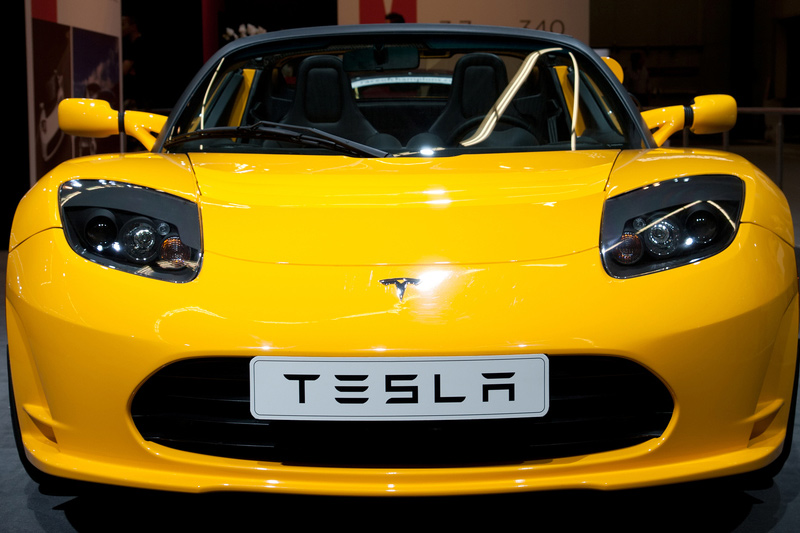On Wednesday, Morgan Stanley (NYSE:MS) maintained its Overweight rating on Tesla (NASDAQ:TSLA) shares with a steadfast price target of $310.00. The firm's analysis suggests that the rising greenhouse gas emissions from global data centers could indirectly benefit Tesla's energy segment while posing a compliance risk for traditional auto manufacturers.
The report indicates that emissions from data centers are expected to grow significantly, with an estimated increase of around 2.5 billion tonnes by 2030. This figure is roughly equivalent to two and a half years of carbon dioxide emissions from all cars currently on U.S. roads.
Morgan Stanley points out the irony in the situation where automakers like Ford (NYSE:F) are purchasing Zero Emission Vehicle (ZEV) credits to comply with global CO2 emissions standards, which may end up funding Tesla's expansion of energy-intensive AI data centers.
Tesla, known for its electric vehicles, also operates a significant AI infrastructure, which had a reported value of $2.5 billion within its property, plant, and equipment (PP&E) at the end of the second quarter of 2024, marking a 65% increase year-over-year. Ford has committed to purchasing approximately $4 billion in ZEV credits, and based on market estimates, up to 50% of these could be sourced from Tesla.
The purchase of ZEV credits by Ford, which supports compliance with emission regulations, ironically could finance Tesla's AI data centers that contribute to CO2 emissions. This situation underscores the complexities of transitioning to lower-emission technologies and the interconnectedness of the automotive and tech industries.
Morgan Stanley's Global Sustainability team forecasts substantial growth in data center construction and electricity use, contributing to the 2.5 billion tonne increase in greenhouse gas emissions between 2024 and 2030. This is projected to be more than 40% of the annual emissions of the United States and triple the data center industry's emissions in a scenario without the development of generative AI.
In other recent news, Microsoft (NASDAQ:MSFT) announced a new $60 billion share buyback program and a 10% increase in its quarterly dividend. Uber Technologies (NYSE:UBER) maintained its Buy rating and $88 target from BofA Securities, despite increased competition in the autonomous vehicle (AV) space. Moreover, Melius upgraded Oracle Corporation (NYSE:ORCL)'s stock rating to Buy due to the company's advancements in artificial intelligence and strategic partnerships.
The US introduced a 100% duty on electric vehicles, potentially affecting supply chains of companies like Tesla. Despite this, the European Union is set to reduce proposed tariffs on Chinese electric vehicles, including Tesla's, to slightly below 8%. Furthermore, China has extended an invitation for discussions with the European Commission regarding these tariffs.
Investors are closely watching these recent developments. While tariffs could impact supply chains, companies such as Uber and Oracle continue to receive positive analyst coverage. However, it's important to note that these are analyst projections and actual results may vary.
InvestingPro Insights
As Tesla (NASDAQ:TSLA) continues to make waves in both the automotive and tech industries, Morgan Stanley's Overweight rating aligns with some of the financial metrics and market performance observed. According to InvestingPro data, Tesla boasts a formidable market capitalization of $727.96 billion, underscoring its significant presence in the market. Despite concerns over its high earnings multiple, with a P/E ratio of 58.52, Tesla's financial stability is evident as it holds more cash than debt on its balance sheet, a reassuring sign for investors considering the company's expansive AI infrastructure and energy segment endeavors.
InvestingPro Tips highlight Tesla's position as a prominent player in the Automobiles industry, which is crucial considering Morgan Stanley's report on the potential indirect benefits to Tesla's energy segment from rising greenhouse gas emissions. The company's ability to cover interest payments with its cash flows and the fact that its liquid assets exceed short-term obligations provide additional confidence in its financial health. For readers interested in a deeper analysis, InvestingPro offers more tips, including insights on Tesla's expected net income, gross profit margins, and valuation multiples, which can be found at https://www.investing.com/pro/TSLA.
With Tesla's stock price movements known for their volatility, the company has still managed a strong return over the last three months, as reflected by a 23.27% price total return. This performance is particularly noteworthy in the context of the article, as it demonstrates Tesla's resilience and potential for growth despite the complexities of the automotive and tech industries' transition to lower-emission technologies.
This article was generated with the support of AI and reviewed by an editor. For more information see our T&C.
